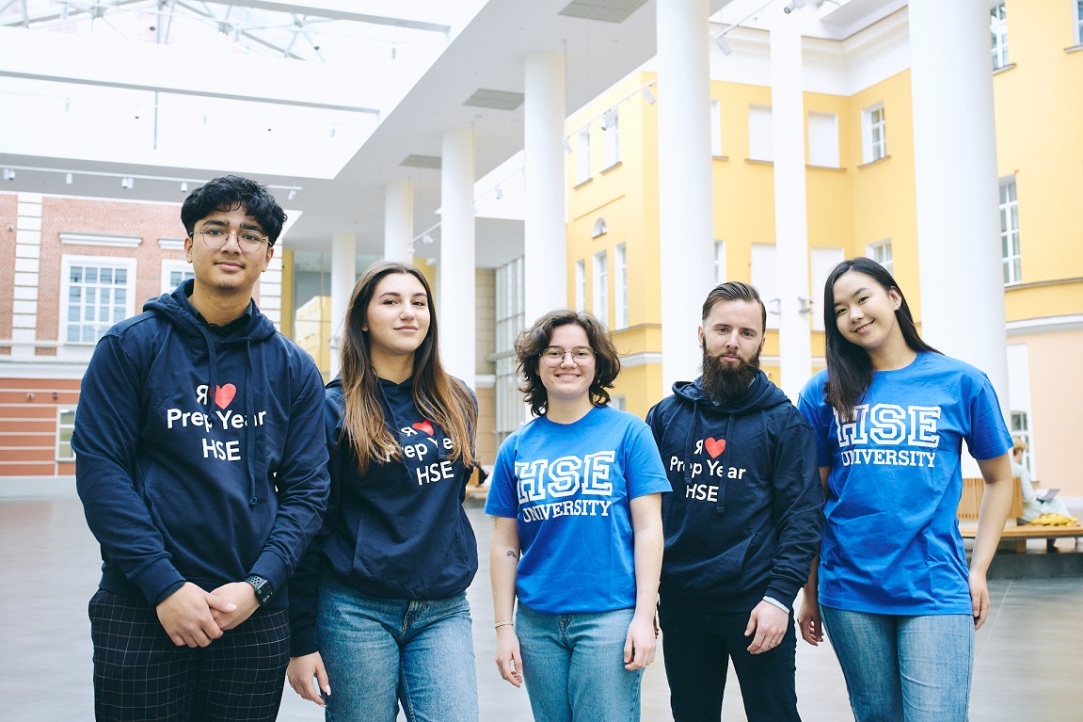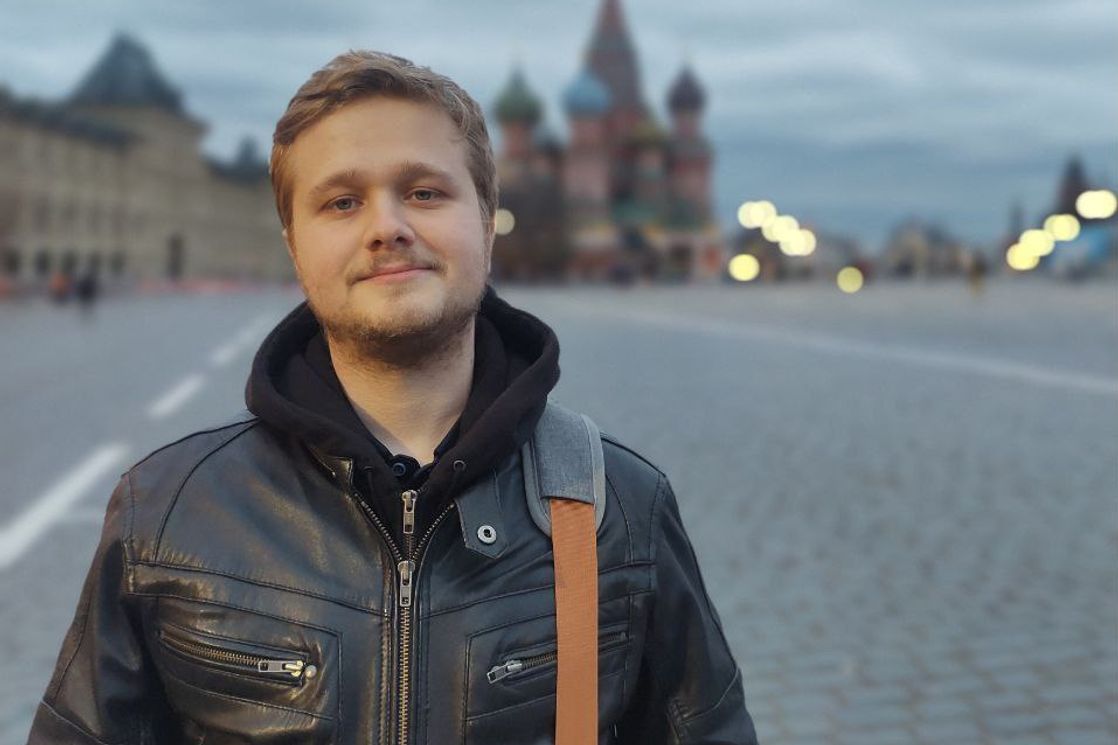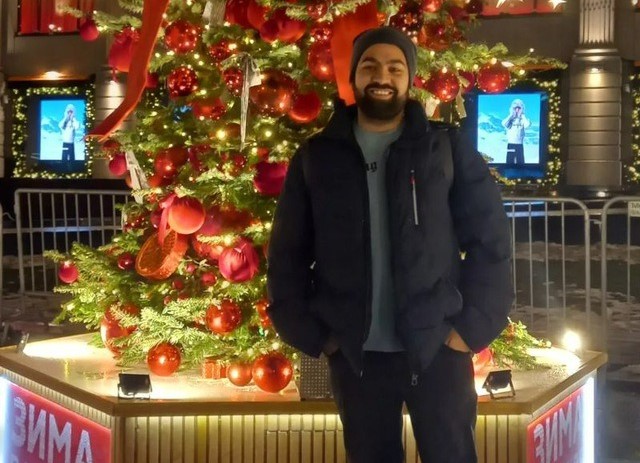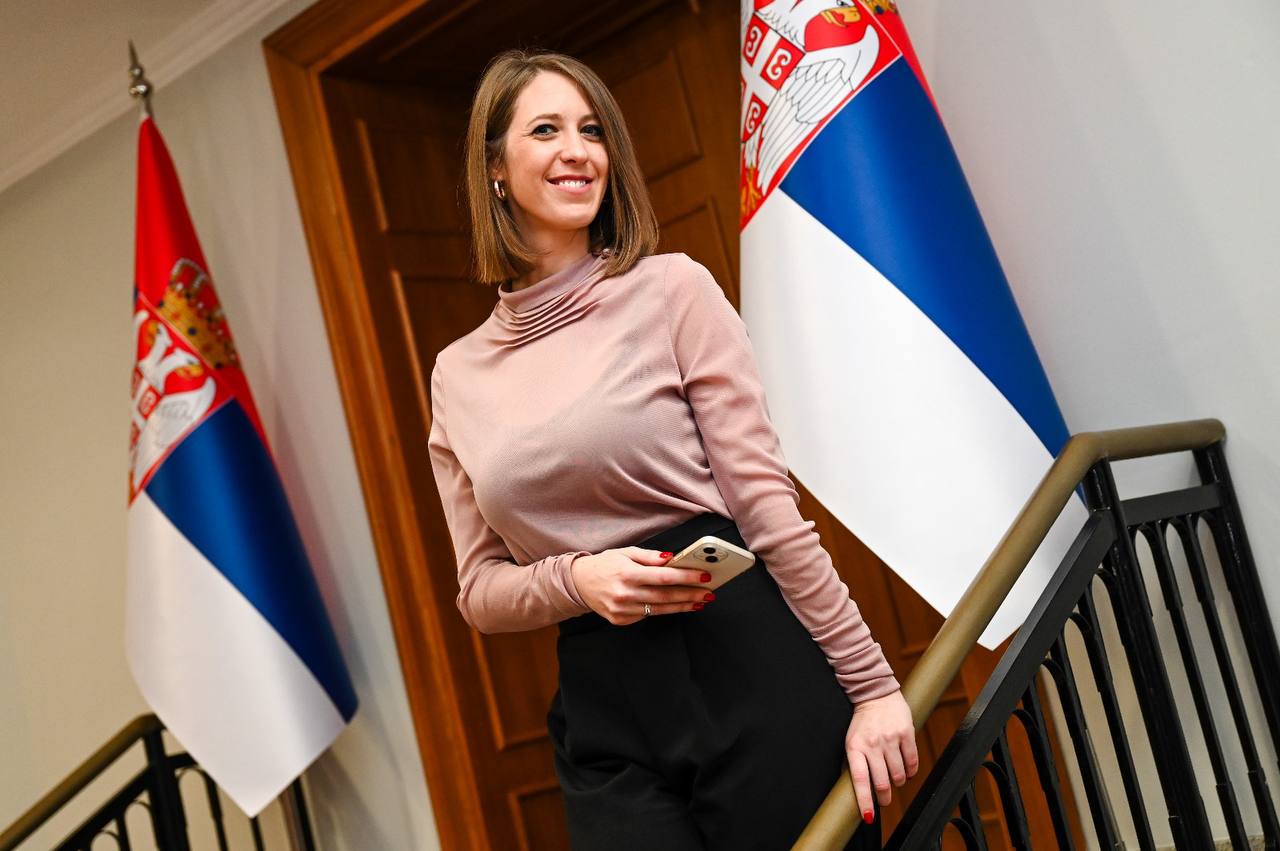‘HSE Stands Out for Its Academic Reputation, International Environment, and Approach to Learning’

This year marks the 10th anniversary of the HSE International Preparatory Year programme. The programme offers a one-year foundation course for international applicants preparing to enter Russian universities. HSE lecturers help future students acquire the knowledge and skills needed to successfully undertake a degree programme in Russia.
Many of the programme’s graduates go on to apply to HSE University itself, and some eventually join the university as staff.
During the year-long course, students can study the Russian language, gain a deeper understanding of Russian culture and traditions, and attend seminars in subject-specific disciplines such as mathematics, physics, computer science, literature, history, social studies, and more. Upon completing the programme, graduates may be eligible for a tuition discount at HSE University.
Graduates of the International Preparatory Year spoke to the HSE News Service about their decision to come to Russia and their experience of studying at HSE University.
Nemanja Stepanov, graduate of the HSE Master’s Programme in International Relations: European and Asian Studies, Analyst at the HSE Mediterranean Studies Centre

Why I Am Here
— I came from Belgrade, the capital of Serbia, because I wanted to study international relations—particularly the relationship between Serbia and Russia, as well as Russian policy in South-Eastern Europe. Historically, our countries have had strong ties: the Serbian people view Russia as their most reliable ally and see Russians as a brotherly nation. However, they do not always fully understand the specifics of Russia and Russian politics. That is why I came here—to explore this field more deeply.
Preparing to Enrol
— A professor from Serbia recommended HSE University to me, and I submitted my application. Before starting the first year of my master’s degree, I had to learn Russian, as the programme was taught in Russian. So, I arrived a year early and enrolled in the International Preparatory Year Programme. At first, we focused solely on learning Russian; later, we were divided into subject areas based on the degrees we planned to pursue.
I would not say that learning the language was difficult, but it was certainly intense. Serbian belongs to the Slavic language family, which made it easier for me than for those whose native languages are from other groups. But that came with its own challenges too—for instance, the same word can have completely different meanings in Serbian and Russian.
Studying at HSE University
— After completing my master’s degree, I enrolled in a doctoral programme, and I am in my second year of postgraduate studies now. I started working with the HSE Mediterranean Studies Centre on various projects during my first year of the master’s programme. At the moment, I am working under the supervision of Ekaterina Entina, who was my academic advisor both during my master’s and now in my PhD. For me, HSE is a place where I can work in a field I am passionate about, alongside great people.
Sachin Malhotra, master’s student in Data Science, Chair of the HSE Student Council Commission on Work with International Students

Moving to Russia and Choosing HSE
— I am from Agra, India—a city known for the Taj Mahal. I chose Russia and HSE University because I was seeking high-quality education in the field of data science. HSE stands out for its strong academic reputation, international environment, and modern approach to learning. I also wanted to experience a different culture and challenge myself by learning a new language and living outside my comfort zone.
The International Preparatory Year
— I decided to complete a preparatory year at HSE to bring my Russian up to a level suitable for daily communication. This is absolutely vital for any international student, especially since many people outside the university do not speak English. During the course, I studied both Russian grammar and conversation, as well as mathematics and history. It gave me a strong linguistic foundation which I used not only in class, but also in everyday life. The programme also gave me the chance to meet students from many different countries, some of whom became close friends.
On the Russian Language
— I have been studying Russian for two years now—one year during the preparatory course and another while doing my master’s. It was quite difficult at first. Russian is a challenging language in itself, and HSE’s academic standards are very high, which pushed me to improve my skills quickly. But in the end, this environment helped me grow not just linguistically, but also academically. It made me more confident and better prepared for student life in Russia.
After the International Preparatory Year
— I went on to enrol in the HSE master’s programme in Data Science. The academic experience has been intense. The programme is well-structured and combines theoretical knowledge with practical skills in machine learning, programming, and statistical analysis. The lecturers are highly qualified, and the international environment encourages collaboration and knowledge-sharing with like-minded peers. Although at times it was difficult, the experience significantly deepened my understanding of data science and equipped me for future professional challenges.
Nevena Bošković, graduate of the HSE Master’s Programme in International Relations: European and Asian Studies

Applying to HSE and Studying There
— I am from Belgrade, Serbia, and I moved to Moscow in January 2021. I made this decision thanks to the Russian House in Belgrade. I had already been thinking of studying Russian, and when I visited the Russian House, I learned about the opportunity to apply for a scholarship from the Russian Ministry of Science and Higher Education. I was interested in international relations, and the staff there suggested I apply to the HSE Faculty of World Economy and International Affairs.
I expected the studies to be very difficult and thought it would be hard to adapt. But it turned out that HSE has amazing lecturers (they’re incredibly knowledgeable) and I learned a great deal from them. I especially want to mention the outstanding lecturer Dmitry Suslov and my supervisor Ekaterina Entina—they encouraged me while I was writing and defending my master’s dissertation.
Adapting to Life in Russia
— It is important for every international student to adapt and understand the language of the country they are in. The International Preparatory Year helped me a lot—I was able to learn the basics of Russian quite easily. I also studied Russian culture, literature, and history—all essential for truly understanding another nation.
Learning Russian
— For the first six months, I studied the language online from Serbia (this was during the pandemic), and then I moved to Moscow to continue in person. I can say I managed to learn the language in a year. Of course, it was much easier for me because Serbs and Russians are both Slavic peoples, and we have many similar words.
I was determined to learn the language well, so I chose a master’s programme taught entirely in Russian: lectures, presentations, exams, and even the thesis were all in Russian. I believe I succeeded thanks to an excellent language teacher and the strong International Preparatory Year programme.
See also:
HSE UNITY FEST 2025: Cross-Cultural Communication and the Synthesis of Traditions
HSE UNITY FEST, a large-scale, three-day celebration of national cultures, has taken place at HSE University. The event was an opportunity to make new friends and experience a true sense of unity, and visitors could immerse themselves in the cultures of different nations, explore their traditions and values, and take part in workshops and games. Students shared their impressions of the event with the HSE News Service.
'We Are Interested in Creating Opportunities for Those Who Are Genuinely Passionate about the Russian Language and Culture'
This year marks the 10th anniversary of HSE University's International Prep Year Programme. Over the past 10 years, approximately 2,000 international students have taken courses offered through the programme. At the core of their educational experience is the study of the Russian language, combined with subjects related to their future specialties, such as mathematics, computer science, literature, and history. In addition, students take part in interactive events organised by the programme. Vice Rector Victoria Panova discusses the origins and development of the HSE International Prep Year, as well as its main purpose.
‘In the Future, I Would Like to Become an HSE University Teacher’
Karina Kuzhanova, third-year student at the Faculty of Law, and Anna Yatsenko, second-year student at the Faculty of Economic Sciences, moved to Moscow from Kazakhstan to study at HSE University. They shared their impressions of studies and student life with the HSE News Service, as well as talking about some of the most inspirational things in the Russian capital.
International Spring School on Human Rights Debates Issues of Religion, Identity and Freedom of Conscience
In May, the HSE Voronovo Learning Centre hosted the International Spring School on Human Rights, a five-day educational retreat organized jointly by the HSE Department of Public Policy, the University of Bologna and the International Institute of Human Rights in Strasbourg.
HSE Becomes Member of Erasmus Student Network
HSE’s volunteer organisation, which is made up of student ‘buddies’ who help foreign students adapt to life in Russia, has become a part of the Erasmus Student Network.
Studying Software Engineering at HSE
The Master’s programme in System and Software Engineering aims to provide students an opportunity not only to acquire the knowledge and experience they need in their chosen profession, but also to help them generate a systemic view on bringing resolutions to the difficult professional challenges they are certain to face in the future. Academic Supervisor Dmitry Alexandrov talks about programme features and international students share their experience of living and studying in Moscow.
Dutch Student Investigates Languages of the Caucasus
Samira Verhees, a Ghent University alumna and doctoral student at the HSE School of Linguistics, spoke about her Caucasian studies.
Students Come from Far and Wide to Study Big Data Systems
The Master’s programme in Big Data Systems at the Higher School of Economics focuses on the value aspect of big data for large enterprises and the implementation of big data technology in enterprises. Two current students of the programme share their thoughts about what drew them to HSE to study big data, what they hope to gain from the programme and what advice they would give to prospective international students.
French Delegation Visits School of Business Informatics to Discuss Cooperation in Big Data Studies
In March 2016, the School of Business Informatics (Faculty of Business and Management) at HSE was visited by a delegation from France’s University of Évry; in late 2015, a student exchange agreement was signed between HSE and this university. The delegation brought 19 students from the Master’s programmes in the field of big data at the University of Évry to Moscow.
Spring School Provides Italian Students Intense Exposure to Russian Culture
‘Texts and Places: Introduction to Russian History, Language and Culture’ (I testi dei luoghi: introduzione alla storia, alla cultura e alla lingua russa), an international Spring School at HSE organized jointly by Julia Ivanova, leading research fellow at the Poletayev Institute for Theoretical and Historical Studies in the Humanities, and the University of Eastern Piedmont Amedeo Avogadro, took place from March 15 to 23.


